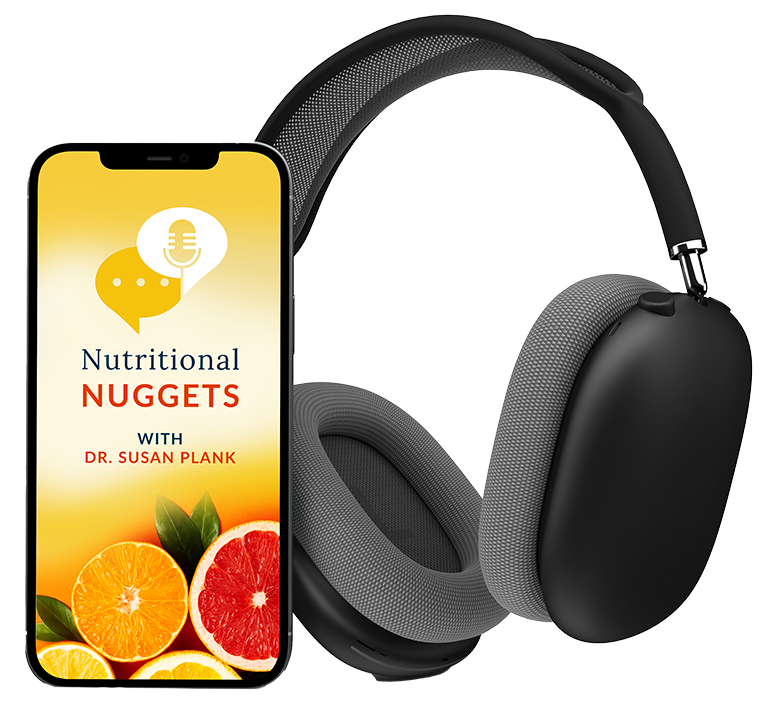Listen to this episode on Spotify 🔊
Decoding Bloating: Your Survival Guide to Relief
Introduction
Are persistent bloating issues affecting your daily life? It’s more than just discomfort—it can impact your overall health. Bloating, often underestimated, can lead to nutritional deficiencies and influence top health concerns such as diabetes, low energy, and hormonal imbalances. The good news? Relief is within reach! In this blog post, we’ll guide you on “How to Stop Bloat in a Week” with a personalized approach that empowers you to regain control of your digestive health. Let’s embark on a journey to a bloat-free and healthier you!
Understanding Bloating Causes
Unraveling the mysteries behind bloating is the key to finding lasting relief. Join us as we delve into the common culprits—dietary factors, gut health, and hormonal changes. Learn how these factors intertwine to create the perfect storm in your digestive system. More importantly, we’ll emphasize the critical need to identify your triggers. Everyone is unique, and so are the triggers that lead to bloating. Understanding these causes is the first step toward a personalized and effective approach to stopping bloating. Let’s uncover the root causes together!
1. Bloating Caused by Hypochlorhydria:
- Low stomach acid levels can hinder proper digestion, leading to gas accumulation and bloating.
- Low stomach acid, known as hypochlorhydria, can create a domino effect on your digestive system, paving the way for gas accumulation and persistent bloating.
2. Bloating Caused by High-Fat Diets (Including Keto):
- Consumption of rich, fatty foods can slow digestion, causing bloating.
- Balancing macronutrients and optimizing dietary fat for digestive comfort.
3. Bloating Caused by High-Fiber Diets Without Adequate Hydration:
- Fiber is crucial for digestive health, but insufficient water intake with high-fiber meals can contribute to bloating.
- Tips for maintaining a well-hydrated digestive system.
4. Bloating Caused by Gallbladder Issues (Including Removal):
- Gallbladder-related challenges can disrupt the processing of fats, leading to bloating.
- Lifestyle adjustments and dietary considerations for those with gallbladder concerns.
5. Bloating Caused by Intestinal Dysbiosis:
- Imbalances in gut bacteria can result in fermentation and gas production.
- Probiotics, prebiotics, and dietary modifications for promoting a healthy gut microbiome.
6. Bloating Caused by Candida or Parasitic Overgrowth:
- Overgrowth of candida or parasites can disturb the delicate balance in the digestive system.
- Protocols for addressing and preventing overgrowth.
7. Bloating Caused by Foods Containing Cucurbitacin:
- Certain vegetables, when contaminated with cucurbitacin, can cause bloating.
- Identifying and avoiding potential sources of cucurbitacin.
8. Bloating Caused by Fermented Foods:
- While beneficial for many, excessive consumption of fermented foods may trigger bloating in some individuals.
- Moderating fermented food intake and finding the right balance.
9. Bloating Caused by Hormone Imbalance or Menstrual Cycle:
- Hormonal fluctuations, especially during the menstrual cycle, can contribute to bloating.
- Insights into managing bloating related to hormonal changes and menstrual cycles.
Natural Remedies for Quick Bloat Relief
1. Remedies for Bloating Due to Hypochlorhydria:
- Apple Cider Vinegar (ACV) Elixir:
- Start your day with a teaspoon of raw, unfiltered apple cider vinegar in warm water before meals.
- ACV supports acid production and promotes a favorable environment for digestion.
- Digestive Bitters Before Meals:
- Incorporate herbal bitters, such as gentian or dandelion, 15-20 minutes before meals.
- Bitters stimulate natural digestive juices, including stomach acid.
- Betaine HCl Supplementation:
- Consider Betaine Hydrochloride supplements under professional guidance.
- This can provide a supplemental source of hydrochloric acid to aid digestion
- Optimize Meal Timing:
- Establish a consistent eating schedule to support natural acid production.
- Avoid heavy meals close to bedtime to allow your digestive system ample time for processing.
2. Remedies for Bloating Due to High-Fat Diets (Including Keto):
- Digestive Enzymes to Support Fat Digestion
- Limit high-fat foods
- Understanding the Impact: Consuming excessive fats, especially the saturated and trans fats found in fried and processed foods, can slow down the digestive process. The body takes longer to break down these fats, leading to a sense of fullness, discomfort, and, you guessed it, bloating.
Strategies for Balancing Macronutrients:
Incorporate Healthy Fats:
- Prioritize sources of healthy fats like avocados, nuts, seeds, and olive oil.
- These fats support overall health and are easier on the digestive system.
Moderate Portion Sizes:
- Enjoy rich, fatty foods in moderation to avoid overwhelming your digestive capacity.
- opt for smaller, balanced portions to prevent bloating after meals.
Pair Fats with Fiber:
- Combine healthy fats with fiber-rich foods to promote smoother digestion.
- Vegetables, fruits, and whole grains complement fats and support digestive health.
Optimizing Dietary Fat for Digestive Comfort:
- Choose Lean Proteins:
- opt for lean protein sources to balance your macronutrient intake.
- Incorporate poultry, fish, legumes, and tofu for a well-rounded meal.
- Mindful Cooking Methods:
- opt for cooking methods like grilling, baking, or steaming instead of deep frying.
- These methods retain flavor without the excess saturated fats.
- Stay Hydrated:
- Drinking water supports the breakdown of fats in the digestive system.
- Ensure adequate hydration throughout the day to ease digestion.
- Digestive Enzyme Supplements:
- Consider digestive enzyme supplements to aid in the breakdown of fats.
- Call us to determine the right supplement for you.
- Regular Physical Activity:
- Engage in regular exercise to promote overall digestive health.
- Physical activity can help regulate digestion and prevent sluggishness.
3. Remedies for Bloating Due to High-Fiber Diets Without Adequate Hydration:
Ginger Infusions:
-
- Embrace the anti-inflammatory properties of ginger by sipping on ginger tea.
- Ginger stimulates digestion and can help alleviate bloating.
- Take a general digestive enzyme
- Stay hydrated but avoid excessive liquids during meals, as it may dilute stomach acid.
- Consume water between meals to maintain overall hydration.
Understanding the Connection: While fiber is essential for digestive health, its ability to absorb water means that insufficient hydration can lead to bloating. Without ample water, fiber can become compacted, causing discomfort and hindering the smooth progression of food through the digestive tract.
Tips for Maintaining a Well-Hydrated Digestive System:
a. Water Before Meals:
- Begin your meals with a glass of water to kickstart hydration.
- This primes your digestive system and prepares it for the incoming fiber.
b. Spread Water Intake Throughout the Day:
- Avoid relying solely on large amounts of water at once.
- Instead, sip water consistently throughout the day to maintain hydration levels.
c. Hydrating Foods:
- Include water-rich foods like cucumbers, watermelon, and celery in your meals.
- These foods contribute to both fiber intake and hydration.
d. Herbal Teas and Infusions:
- Embrace herbal teas or infusions to supplement your water intake.
- Choose caffeine-free options for optimal hydration benefits.
e. Monitor Urine Color:
- Keep an eye on the color of your urine; pale yellow indicates proper hydration.
- Adjust your water intake accordingly to maintain this hue.
f. Electrolyte Balance:
- Ensure a balance of electrolytes, especially if you engage in physical activity.
- Electrolytes support proper hydration and prevent imbalances.
g. Customize Water Intake to Fiber Consumption:
- Tailor your water intake based on the amount of fiber in your meals.
- Higher fiber meals may require slightly increased hydration.
h. Listen to Your Body:
- Pay attention to your body’s signals for thirst.
- Responding promptly to thirst cues aids in maintaining optimal hydration.
4. Remedies for Bloating Due to Gallbladder Issues (Including Removal):
- Digestive Enzymes to Support Fat Digestion
- Navigating Digestive Comfort After Gallbladder Challenges:
Encountering gallbladder-related challenges can cast a shadow on digestive harmony, often manifesting as troublesome bloating. Whether you’re grappling with gallbladder issues or have undergone its removal, understanding the impact on fat processing is key. Let’s explore tailored lifestyle adjustments and dietary considerations to reclaim comfort on your digestive journey.
The Impact of Gallbladder Challenges: The gallbladder plays a crucial role in storing and releasing bile—a digestive fluid essential for fat breakdown. When facing challenges or removal, this process can become disrupted, leading to difficulties in processing fats and, consequently, bloating.
Lifestyle Adjustments for Gallbladder Concerns:
i. Moderate Fat Intake:
- opt for smaller, more frequent meals to ease the digestive load.
- Limiting fat intake in each meal can reduce the strain on your digestive system.
ii. Embrace Healthy Fats:
- Choose sources of healthy fats, such as avocados, nuts, and olive oil.
- These fats are generally easier to digest and less likely to trigger discomfort.
iii. Gradual Introduction of High-Fiber Foods:
- Introduce high-fiber foods gradually to assess tolerance.
- Fiber aids digestion but can be challenging for some individuals’ post-gallbladder removal.
iv. Lean Protein Choices:
- Prioritize lean protein sources like poultry, fish, and plant-based alternatives.
- These proteins are less likely to exacerbate digestive challenges.
Dietary Considerations Post-Gallbladder Removal:
Small, Frequent Meals:
- Opt for several small meals throughout the day to support digestion.
- This approach reduces the demand on your digestive system at any given time.
i. Bile Supplements:
- Consult with a healthcare professional about bile salt supplements.
- These supplements can assist in the breakdown of fats, compensating for the reduced bile flow.
ii. Hydration is Key:
- Ensure adequate hydration to support digestion and prevent constipation.
- Hydration aids in the overall digestive process, especially when dealing with changes post-gallbladder removal.
iii. Monitor and Adjust:
- Pay attention to how your body responds to different foods.
- Adjust your diet based on individual tolerance and comfort levels. Limit high-fat foods
5. Remedies for Bloating Due to Intestinal Dysbiosis:
- Imbalances in gut bacteria can result in fermentation and gas production.
- Probiotics, prebiotics, and dietary modifications for promoting a healthy gut microbiome.
- Understanding Intestinal Dysbiosis: Our gut plays host to trillions of microorganisms, collectively forming a complex ecosystem. Intestinal dysbiosis occurs when this balance is disturbed, leading to an overgrowth of certain bacteria. Fermentation of undigested food particles becomes prevalent, contributing to gas production and the discomfort of bloating.
Cultivating a Healthy Gut Microbiome:
- Probiotics for Microbial Reinforcement:
i. Introduce probiotic-rich foods like yogurt, kefir, and fermented vegetables.
ii. Probiotics replenish beneficial bacteria, aiding in digestion and reducing gas. - Prebiotics as Microbial Fuel:
i. Include prebiotic-rich foods such as garlic, onions, bananas, and asparagus.
ii. Prebiotics serve as fuel for the growth of beneficial gut bacteria. - Dietary Diversity and Fiber-Rich Choices:
i. Embrace a diverse range of foods to promote microbial diversity.
ii. High-fiber choices like whole grains and legumes nourish beneficial bacteria. - Avoid Excessive Sugar and Processed Foods:
i. Minimize intake of sugary and highly processed foods.
ii. These can fuel the growth of less desirable bacteria, contributing to dysbiosis. - Fermented Foods for Gut Harmony:
i. Regularly incorporate fermented foods into your diet.
ii. Sauerkraut, kimchi, and kombucha enhance gut health with their probiotic content. - Moderate Antibiotic Use:
i. Use antibiotics judiciously, as they can disrupt the balance of gut bacteria.
ii. If prescribed, consider probiotic supplementation alongside antibiotics. - Regular Exercise and Stress Management:
i. Engage in regular physical activity to support gut health.
ii. Manage stress through techniques like meditation, as stress can impact gut microbial balance. - Consult a Healthcare Professional:
i. If symptoms persist, consult a healthcare professional.
ii. They can guide you with personalized recommendations and potential probiotic supplements.
6. Remedies for Bloating Due to Candida or Parasitic Overgrowth:
- Overgrowth of candida or parasites can disturb the delicate balance in the digestive system.
- Protocols for addressing and preventing overgrowth, include cutting sugar and starches while taking supplementation or medication to kill off the colonies
Understanding Candida and Parasitic Overgrowth: Candida, a type of yeast, and parasitic invaders can multiply beyond their normal limits, unsettling the balance in the digestive system. This overgrowth may lead to fermentation, gas production, and the persistent presence of bloating.
Protocols for Addressing and Preventing Overgrowth:
- Antifungal and Antiparasitic Foods:
a. Integrate natural antifungal and antiparasitic foods into your diet.
b. Garlic, oregano oil, and pumpkin seeds possess properties that can help combat overgrowth. - Probiotic Supplementation:
a. Incorporate high-quality probiotic supplements into your routine.
b. Probiotics foster a healthy balance of gut bacteria, suppressing the growth of candida and parasites. - Low-Sugar and Low-Carb Diet:
a. Restrict the intake of refined sugars and carbohydrates.
b. Candida thrives on sugars, and reducing their availability can hinder overgrowth. - Herbal Remedies:
a. Explore herbal remedies with antifungal and antiparasitic properties.
b. Consult with a healthcare professional to ensure safe and effective use. - Digestive Enzymes:
a. Consider digestive enzyme supplements to support nutrient absorption.
b. These enzymes can aid in breaking down food particles, reducing opportunities for overgrowth. - Gut-Healing Foods:
a. Embrace gut-healing foods like bone broth and aloe vera.
b. These nourish and soothe the digestive lining, promoting a healthy environment. - Avoid Excessive Antibiotic Use:
a. Use antibiotics judiciously, as they can disrupt the balance of gut microorganisms.
b. Overuse may contribute to candida and parasitic overgrowth. - Regular Parasite Cleanses:
a. Consider periodic parasite cleanses under professional guidance.
b. These protocols can help eliminate parasites and support a healthy gut environment. - Hydration and Fiber-Rich Diet:
a. Stay adequately hydrated and maintain a diet rich in fiber.
b. Hydration and fiber support optimal digestion and discourage overgrowth. - Consult a Healthcare Professional:
a. If symptoms persist or worsen, seek guidance from a healthcare professional.
b. They can conduct tests to determine the presence of overgrowth and tailor a treatment plan.
7. Remedies for Bloating Due to Foods Containing Cucurbitacin:
- Certain vegetables, when contaminated with cucurbitacin, can cause bloating.
- Identifying and avoiding potential sources of cucurbitacin, such as cucumber, pumpkin, watermelon and squash.
Understanding Cucurbitacin and its Link to Bloating: Cucurbitacin is a natural compound found in certain vegetables of the Cucurbitaceae family. While these vegetables are generally nutritious, the presence of high levels of cucurbitacin can impart a bitter taste and, when consumed, may contribute to digestive discomfort, including bloating.
Identifying and Avoiding Potential Sources of Cucurbitacin:
- Bitter Taste Alert:
a. Be attentive to the taste of vegetables. Bitterness, especially in cucumbers, zucchinis, and squash, may indicate elevated cucurbitacin levels. - Check for Color and Texture:
a. Examine the color and texture of the vegetable’s skin.
b. Abnormalities, such as unusually dark or distorted patches, may signal higher cucurbitacin content. - Select Varieties Mindfully:
a. Choose vegetable varieties known for lower cucurbitacin levels.
b. Seek guidance from local farmers or vendors who are familiar with their produce. - Homegrown or Trusted Sources:
a. Opt for vegetables from reputable sources or consider growing your own.
b. Homegrown produce and trusted suppliers often adhere to quality standards. - Wash Thoroughly:
a. Thoroughly wash vegetables, especially those with edible skins.
b. Proper washing can help reduce the risk of cucurbitacin contamination. - Observe Plant Growth:
a. If you grow cucurbitaceous vegetables, monitor plant health.
b. Unhealthy plants may produce higher levels of cucurbitacin. - Educate Yourself:
a. Stay informed about cucurbitacin levels in different vegetables.
b. Knowledge empowers you to make informed choices when selecting produce. - Monitor Personal Tolerance:
a. Pay attention to your body’s response after consuming cucurbitacin-containing vegetables.
b. Individual tolerance levels can vary, and adjusting your intake accordingly is key. - Rotate Vegetable Choices:
a. Incorporate a variety of vegetables into your diet and rotate choices.
b. Diversifying your selection minimizes the risk of consistent cucurbitacin exposure.
Empowering Your Plate, Reducing Bloat: By becoming adept at identifying and avoiding potential sources of cucurbitacin, you reclaim control over your digestive comfort. Navigating the world of vegetables with cucurbitacin awareness allows you to enjoy a diverse, nutritious diet without the unwelcome side effects of bloating.
8. Remedies for Bloating Due to Fermented Foods:
- While beneficial for many, excessive consumption of fermented foods may trigger bloating in some individuals.
- Moderating fermented food intake and finding the right balance.
Acknowledging the Benefits of Fermented Foods: Fermented foods, rich in probiotics, play a pivotal role in supporting a healthy gut microbiome. They contribute to digestive well-being, immune function, and nutrient absorption. However, it’s essential to recognize that what works wonders for some may pose challenges for others.
Navigating Bloating from Fermented Foods:
- Individual Variability:
a. Recognize that individuals respond differently to fermented foods.
b. Factors such as gut health, microbiome composition, and personal tolerance levels vary. - Identify Trigger Foods:
a. Observe your body’s response to different fermented foods.
b. Some individuals may be more sensitive to certain types, such as kimchi or sauerkraut. - Moderation is Key:
a. Embrace a moderate approach to fermented food consumption.
b. Excessive intake, even of beneficial foods, can overwhelm the digestive system. - Diversify Fermented Choices:
a. Explore a variety of fermented foods to identify those that suit you best.
b. This approach minimizes the risk of relying heavily on a single type. - Consider Homemade Ferments:
a. Experiment with homemade fermented foods.
b. Controlling the fermentation process allows you to adjust factors like salt content, potentially reducing bloating. - Pair Ferments Mindfully:
a. Combine fermented foods with a well-balanced meal.
b. Pairing them with fiber-rich vegetables and lean proteins supports digestive balance. - Monitor Frequency:
a. Pay attention to how frequently you consume fermented foods.
b. Spacing out intake allows your digestive system time to process without overload. - Consult a Nutrition Professional:
a. If bloating persists, consult a nutrition professional.
b. They can assess your dietary habits, identify potential triggers, and offer personalized guidance.
Embracing a Balanced Fermentation Journey: Fermented foods hold immense promise for digestive health, but finding the right balance is key.
9. Remedies for Bloating Due to Hormone Imbalance or Menstrual Cycle:
- Hormonal fluctuations, especially during the menstrual cycle, can contribute to bloating.
- Insights into managing bloating related to hormonal changes and menstrual cycles.
Understanding Hormonal Contributions to Bloating: Hormones play a dynamic role in regulating bodily functions, including water retention and digestion. Throughout the menstrual cycle, fluctuations in estrogen and progesterone levels can influence fluid balance, leading to bloating and discomfort.
Insights into Managing Bloating During Menstrual Cycles:
- Hydration and Electrolyte Balance:
a. Maintain optimal hydration levels during your menstrual cycle.
b. Proper hydration aids in mitigating water retention and reducing bloating. - Limit Sodium Intake:
a. Be mindful of sodium intake, especially in the days leading up to menstruation.
b. Excessive salt can contribute to water retention and bloating. - Incorporate Diuretic Foods:
a. Include diuretic foods like cucumber, watermelon, and celery in your diet.
b. These foods support natural fluid balance and reduce bloating. - Regular Exercise:
a. Engage in regular physical activity throughout your menstrual cycle.
b. Exercise promotes circulation and helps alleviate bloating. - Herbal Teas for Comfort:
a. Sip on herbal teas known for their bloating-relief properties.
b. Peppermint and ginger teas can have soothing effects on the digestive system. - Mindful Eating Practices:
a. Practice mindful eating to enhance digestion.
b. Chew food thoroughly and avoid overeating to minimize bloating. - Consider Hormone-Regulating Foods:
a. Incorporate foods that support hormone balance.
b. Flaxseeds, fatty fish, and leafy greens contain nutrients beneficial for hormonal health. - Supplement Wisely:
a. Consult with a healthcare professional about supplements that may aid in hormonal balance.
b. Omega-3 fatty acids and certain vitamins can be supportive. - Manage Stress Levels:
a. Practice stress management techniques like meditation or deep breathing.
b. Chronic stress can exacerbate hormonal fluctuations and bloating. - Track Your Cycle:
a. Keep a menstrual cycle diary to identify patterns.
b. Understanding your body’s unique rhythm allows for proactive bloating management.
Empowering Your Menstrual Wellness: By incorporating these insights into your routine, you can navigate hormonal fluctuations with grace and minimize the impact of bloating during your menstrual cycle.
In Conclusion: Unveiling the Path to Bloating Relief
Bloating, though common, is a nuanced language spoken by our bodies—each discomfort revealing a unique story. Understanding that bloating is not a one-size-fits-all phenomenon is the key to unlocking the door to relief. Identifying the cause becomes the compass guiding us toward tailored solutions and a life free from the grip of persistent bloating.
Why Identifying the Cause Matters:
Bloating is your body’s intricate signal, a conversation between systems seeking balance. From dietary choices and gut health to hormonal fluctuations and lifestyle factors, every factor plays a role. Identifying the cause is not merely about treating symptoms; it’s about addressing the root and crafting a personalized roadmap to wellness.
Your Free Invitation to Decoding Bloating: Your Survival Guide to Relief in 7 Days! an online webinar with Dr. Plank Wednesday, January 31st at 6pm.







